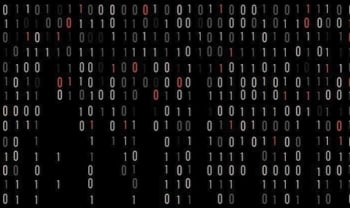Understanding the Differences Between DORA and NIS 2
Two significant pieces of European legislation stand out as cybersecurity regulations evolve: the Digital Operational Resilience Act (DORA) and the NIS 2 Directive. Both aim to enhance cybersecurity but target different sectors and have distinct objectives and requirements.
Overview of DORA and NIS 2
DORA: Effective from January 17, 2025, DORA focuses on the financial sector, aiming to ensure that financial entities can withstand and operate during and after cyberattacks. The primary goal is to maintain the availability and integrity of financial services, emphasizing operational resilience.
NIS 2: To be transposed into national laws by October 2024, NIS 2 aims to harmonize cybersecurity across the EU, targeting essential entities in various sectors such as energy, transport, health, and digital infrastructure. The directive seeks to elevate the overall level of cybersecurity within the EU.
Differences Between DORA and NIS 2
-
Scope and Targeted Entities:
- DORA applies to 21 financial entities, including banks, investment firms, insurance companies, and ICT (information and communication technology) third-party service providers.
- NIS 2 covers a broader range of sectors, distinguishing between Essential Entities (EE), like energy and transport providers, and Important Entities (IE), such as postal services and food production companies.
-
Objectives:
- DORA focuses on ensuring the operational resilience of the financial sector. It mandates comprehensive ICT (information and communication technology) risk management, incident management, resilience testing, third-party risk management, and information sharing within the financial sector.
- NIS 2 aims to improve the overall cybersecurity posture across the EU, emphasizing governance and incident detection and response, and securing and testing perimeters and assets in various critical sectors.
-
Compliance and Enforcement:
- DORA is a regulation that will be directly applicable in all EU member states without the need for national transposition. It demands rigorous security testing, including annual resilience testing and threat-led penetration tests every three years.
- NIS 2 is a directive, requiring transposition into national laws, which may introduce variations. It imposes strict penalties for non-compliance, including fines of up to 2% of annual global turnover for Essential Entities.
-
Third-Party Risk Management:
- DORA requires financial entities to manage risks posed by ICT third-party service providers, ensuring robust contracts and continuous monitoring.
- NIS 2 also addresses supply chain security but within a broader context, impacting various sectors beyond financial services.
WatchGuard Solutions for Compliance
WatchGuard offers a range of products to help partners and their customers comply with DORA and NIS 2 requirements:
ICT Risk Management:
- Firewalls with features like Gateway AntiVirus and DNSWatch.
- Endpoint Security solutions (EPP, EDR, EPDR, Advanced EPDR) with risk dashboards and vulnerability assessments.
- Patch Management and Full Encryption for data protection.
Incident Management:
- Continuous threat monitoring with EDR and ThreatSync+ NDR.
- 24/7 monitoring and incident response with WatchGuard MDR.
Resilience Testing:
- ThreatSync+ NDR for simulating attacks and identifying vulnerabilities.
- Endpoint Security Solutions for resilience testing and forensic analysis.
Third-Party Risk Management:
- Network Access Controls and ThreatSync+ NDR are used to monitor third-party activities.
- AuthPoint MFA for secure third-party access.
Managed Security Services for Partners
To reduce customers’ workload and ensure proper security management, partners can offer the following managed services on top of WatchGuard’s products and services:
- 24/7 Security Monitoring
- Threat Hunting and Incident Response
- Patch Management
- Security Assessments
- Compliance Reporting
- Endpoint Protection Management
- User Training and Awareness
By leveraging WatchGuard’s comprehensive security solutions and offering these managed services, partners can help customers enhance their cybersecurity posture and ensure compliance with DORA and NIS 2.


